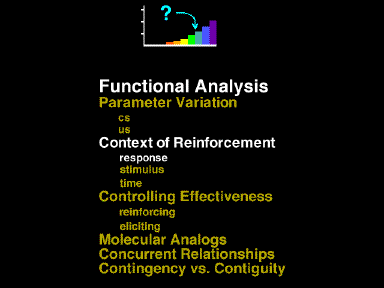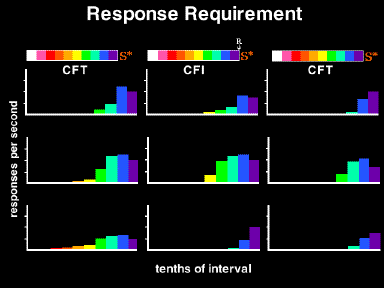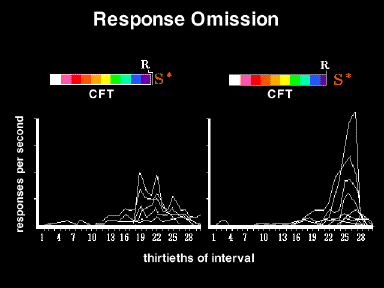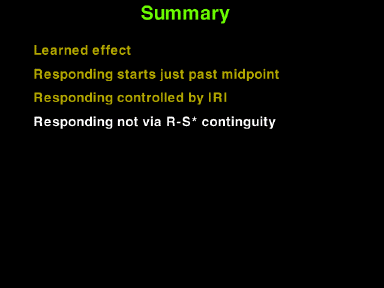 Slide 2-39
Slide 2-39

 Slide 2-39
Slide 2-39
The context of reinforcement is considered to be the determinant of the resulting behavior by most theories of learning. Variations in the contiguity or correlation of responses, stimuli, and time with the reinforcer are thought to be the only mechanism whereby behavior "knows what to be in order to" be adapative in the situation. For example, operant conditioning occurs when a relationship is enforced between a response and a reinforcer. The various behaviors controlled by various schedules of reinforcement differ because each schedule enforces a different context of reinforcement
 Slide 2-40
Slide 2-40
Each of three birds were consecutively expose to a stimulus sequence ending in food presentation (a Clocked Fixed Time or CFT); a stimulus sequence requiring a peck at the end (a Clocked Fixed Interval or CFI); and finally a return to a CFT schedule. In sum, the response requirement did not change the behavior.
 Slide 2-41
Slide 2-41
A number of birds were exposed to procedures which prohibited key pecking immediately preceeding the reinforcer. Any behavior but key pecking could preceed the reinforcer. The left panel illustrates a procedure which simply deleted the upcoming food presentation if a response occurred in the final stimulus. The right panel illustrates a procedure which also immediately terminated the final stimulus if a response occurred in the final stimulus. Behavioral output was lower but continued to occur in the second half of both sequences.
 Slide 2-42
Slide 2-42
In sum, these two experiments indicated that the responding obtained under an interfood clock was not due to response reinforcer contiguity.
Date Last Reviewed : May 26, 2003